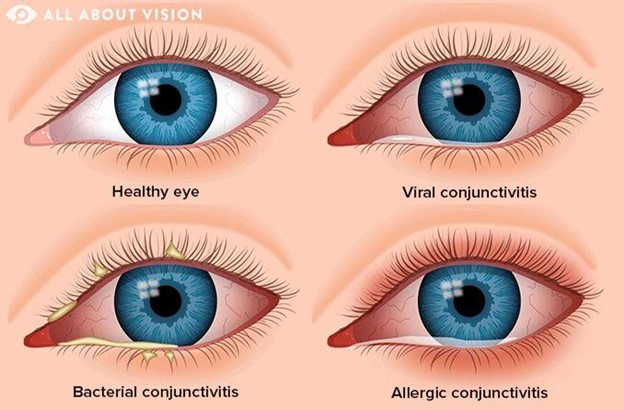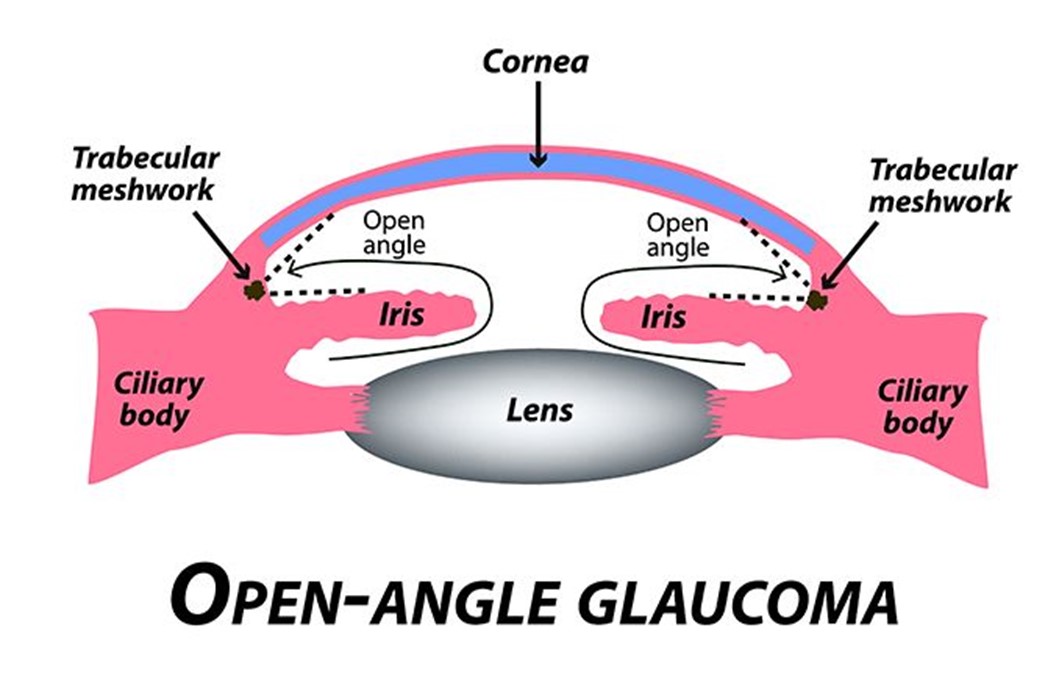A client arrives with a pink eye that is itchy, swollen, and uncomfortable with a creamy discharge. Which of the following home care instructions will the nurse offer to the client?
Wash towels, sheets, and pillowcases
Use antifungal drops 3 times a day
Schedule a sexually transmitted infection (STI/STD) exam
Avoid going outside during daylight hours
The Correct Answer is A
Choice A Reason: This is the correct choice. Washing towels, sheets, and pillowcases is a home care instruction that the nurse will offer to the client, as it prevents reinfection and transmission of bacteria or viruses. The client has conjunctivitis, which is inflammation of the conjunctiva or thin membrane that covers the white part of the eye and lines the eyelids. It can be caused by bacteria, viruses, allergies, or irritants.
Choice B Reason: This is an incorrect choice. Using antifungal drops 3 times a day is not a home care instruction that the nurse will offer to the client, as it is not effective for conjunctivitis. Antifungal drops are used for fungal infections of the eye, which are rare and usually occur after trauma or surgery. The client may need antibiotic or antiviral drops, depending on the cause of conjunctivitis.
Choice C Reason: This is an incorrect choice. Scheduling a sexually transmitted infection (STI/STD) exam is not a home care instruction that the nurse will offer to the client, as it is not relevant for conjunctivitis. STIs can affect the eyes, but they usually cause different symptoms, such as redness, pain, or discharge from the urethra or vagina. The client may need to be tested for STIs if they have other risk factors or signs of infection.
Choice D Reason: This is an incorrect choice. Avoiding going outside during daylight hours is not a home care instruction that the nurse will offer to the client, as it is not necessary for conjunctivitis. The client may experience sensitivity to light, but they can wear sunglasses or avoid direct sunlight to protect their eyes. The client should also avoid rubbing or touching their eyes, wear glasses instead of contact lenses, and discard any eye makeup or cosmetics that may be contaminated.

Nursing Test Bank
Naxlex Comprehensive Predictor Exams
Related Questions
Correct Answer is C
Explanation
Choice A reason: This is incorrect because it is necessary to remove contact lenses before administering medications. Contact lenses can absorb or interfere with the absorption of eye drops and cause irritation or infection. The nurse should instruct the client to remove contact lenses before applying eye drops and wait at least 15 minutes before reinserting them.
Choice B reason: This is incorrect because administering the medications by touching the tip of the dropper to the sclera of the eye can cause contamination or injury. The sclera is the white part of the eye that covers most of the eyeball. The nurse should instruct the client to avoid touching the tip of the dropper to any part of the eye or eyelid and hold it about 1 cm above the lower eyelid.
Choice C reason: This is correct because administering the medications 5 min apart can prevent dilution or washout of one medication by another. Timolol and pilocarpine are two different types of eye drops that are used to treat open-angle glaucoma, which is a condition that causes increased pressure inside the eye and damage to the optic nerve. Timolol is a beta-blocker that reduces the production of fluid in the eye, and pilocarpine is a cholinergic agent that increases the drainage of fluid from the eye. The nurse should instruct the client to apply one drop of each medication in the affected eye(s) and wait at least 5 minutes between each medication.
Choice D reason: This is incorrect because holding pressure on the conjunctival sac for 2 min following the application of eye drops can reduce systemic absorption and side effects of eye drops. The conjunctival sac is the space between the lower eyelid and the eyeball. The nurse should instruct the client to gently close their eyes after applying eye drops and press their index finger against the inner corner of their eye for 2 minutes. This can block the tear duct that drains fluid from the eye to the nose and prevent it from entering the bloodstream.

Correct Answer is ["D","E"]
Explanation
Choice A Reason: This choice is incorrect. Placing the client into a supine position is not an action that the nurse should take, as it can compromise the airway and increase the risk of aspiration. The nurse should position the client on their side with their head tilted slightly forward to allow saliva and secretions to drain out of their mouth.
Choice B Reason: This choice is incorrect. Applying restraints is not an action that the nurse should take, as it can cause injury and increase agitation. The nurse should protect the client from harm by removing any objects or furniture that may cause harm and padding any hard surfaces with blankets or pillows.
Choice C Reason: This choice is incorrect. Inserting a bite stick into the client's mouth is not an action that the nurse should take, as it can cause injury and obstruction. The nurse should never force anything into the client's mouth during a seizure, as it can damage their teeth, gums, tongue, or jaw.
Choice D Reason: This is a correct choice. Loosening restrictive clothing is an action that the nurse should take, as it can improve breathing and circulation. The nurse should unbutton any tight collars, belts, or ties that may constrict the chest or neck.
Choice E Reason: This is a correct choice. Placing a pillow under the client's head is an action that the nurse should take, as it can prevent injury and provide comfort. The nurse should support the client's head with a soft pillow or cushion to prevent hitting it against any hard surfaces.

Whether you are a student looking to ace your exams or a practicing nurse seeking to enhance your expertise , our nursing education contents will empower you with the confidence and competence to make a difference in the lives of patients and become a respected leader in the healthcare field.
Visit Naxlex, invest in your future and unlock endless possibilities with our unparalleled nursing education contents today
Report Wrong Answer on the Current Question
Do you disagree with the answer? If yes, what is your expected answer? Explain.
Kindly be descriptive with the issue you are facing.
